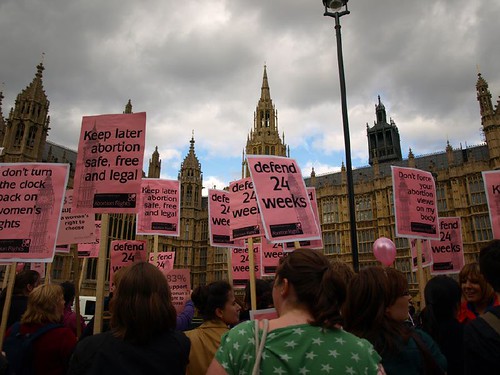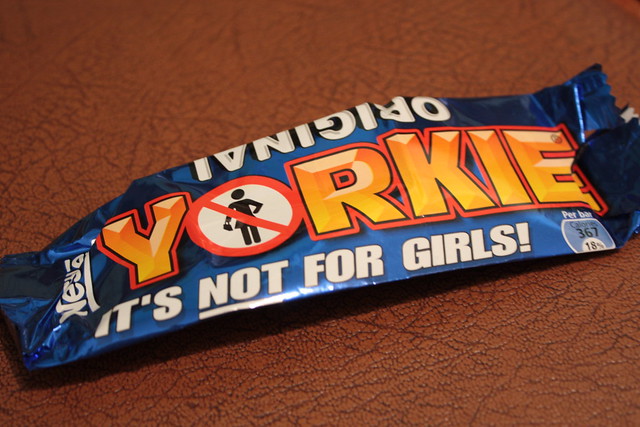
1. Government debates giving anonymity to rape defendants
Politicians and activists alike were left reeling when the coalition government announced that it planned to give anonymity to rape defendants. As the tabloids went to town on reports of false allegations and 'evil' women 'ruining the lives of innocent men', those opposed to the move expressed their concern that it signified a move towards further victim-blaming and the insinuation that most women lie about rape, despite the fact that the percentage of false allegations is no greater than for any other crime. A major worry was such legislation would discourage women from coming forward and hinder the police in catching serial rapists, whose victims might report them after seeing coverage of other crimes they had committed.
Thankfully the coalition abandoned its plans in November, but only after months of protest from women's rights groups and some ministers. There was concern that it would instead look to change the way the media can name suspects, but plans seem to have been buried for now.
2. Can the words 'conservative' and 'feminist' go hand in hand?
If you're Sarah Palin and her band of 'mama grizzlies' - yes. For a lot of other women, the answer's a resounding 'no'. We'd had this debate before, around the time of the election in 2008, but it came back with a vengeance in 2010. Sarah P made a speech earlier in the year, using the f-word and 'reclaiming' it for her brand of anti-choice, conservative politics and it hasn't gone down well with a lot of liberal women, who don't feel that those who wish to restrict access to abortion and support the Republican party's somewhat-lacking-in-social-justice goals and policies should be holding up the feminist banner.
Prominent liberal feminists like Jessica Valenti discussed it at length. We had magazine articles, endless news stories. Women argued over whether it was right to debate who gets to call thsemslves a feminist or not. To be honest, there was a time where it looked like it was never going to get off the front pages of certain blogs and sites. As I said when I wrote about it for BitchBuzz back in the summer, will this never end?
3. Mac and Rodarte's disastrously-inspired cosmetics
In July, Kate and Laura Mulleavy of Rodarte collaborated with Mac to produce a new make-up line 'inspired' by the Mexican city of Juarez and the women who live there. Unfortunately, Juarez just happens to be known as one of the most violent cities in the world, one where at least 400 violent murders of women since 1993 have been left unsolved and the word 'femicide' was coined. Many locals believe that the death toll could be as high as 5000.
The majority of the murdered women were workers in the city's sweatshops - the factories which inspired shades with names such as 'Badlands' and 'Ghost Town'. The outcry at the make-up line, which was branded 'tasteless' and 'insensitive', forced MAC and Rodarte to release statements of apology, in which they said they planned to change the names of the offending products and donate $100,000 to benefit women in the city.
The oversight shown by MAC and Rodarte here was pretty astounding, but at least they moved quickly to rectify their mistakes. In the meantime, there's still no justice for the people of Juarez.
4. Fawcett Society takes Government to court over budget
As the reality of the coalition government's emergency budget and the impact it would have on the lives of the disadvantaged became unpleasantly clear, everyone was feeling pretty disheartened about what looked set to happen. It was obvious that many of the cuts made - to housing benefit, child benefit and changes in the tax system - would hit women much harder than men.
The Fawcett Society almost immediately issued a challenge, stating its intentions to take the Government to court and have the budget declared unlawful under equality laws. Fawcett claimed that politicians had made no assessment of the impact the cuts would have on gender equality. Said Chief Executive Ceri Goddard:
"Women already earn less, own less, and have less control over their finances than men. Yet some £5.8 billion of the £8 billion of cuts contained in the budget will be taken from women."
Many other activists joined in the call for a rethink on the budget, but unfortunately the High Court this month refused Fawcett permission to challenge its legality - despite the fact that the Government admitted it had not carried out an assessment of how the cuts will impact gender equality. The outlook for the next few years, meanwhile, looks ever more depressing.
5. The Assange case: Naomi Wolf branded a 'sell-out'
Nothing has generated debate, anger and drama recently like the reactions surrounding Wikileaks founder Julian Assange and the allegations of sexual assault made against him. From the start, feminists expressed anger at the way many of Assange's supporters, the so-called 'progressive' men of the liberal and left spheres, dismissed the allegations as 'a conspiracy' and downright lies. To see how dismissive their reaction has been, you only have to take a look at the #mooreandme tag on Twitter.
But then Naomi Wolf weighed in with an open letter, in which she accused the 'world's dating police' of being out to get Assange. Cue the backlash, in which she's been accused of trivialising rape, victim-blaming, letting the side down and generally acting like an unpleasant person. Just this week she went head to head with fellow feminist writer Jaclyn Friedman, in a discussion about the case which left many women - including Friedman herself - feeling appalled and upset by her comments.
Meanwhile, Assange hasn't been helping his case at all by claiming that his accusers had simply 'got into a tizzy' about the possibility of catching STDs from him. Because being patronised is just what they need on top of everything else.
This post originally appeared at BitchBuzz. Image via sizemore's Flickr.
















